ICYMI: Our Top 10 Blog Posts of 2020
December 23, 2020
It’s (finally) almost time to bid 2020 farewell—and judging from the comments we’ve seen on social media, we’re all pretty eager to say goodbye to this year. While some educators have felt motivated by the unique challenges of this year, many more have felt depleted by impossible demands on their schedule, frustrated by policy decisions, worried about students who are struggling with personal and academic issues, and concerned about the long-term effects the pandemic will have on the physical and mental well-being of every member of the school community. We share your concerns, we stand by you, and we’re committed to bringing you information that can help—through the Inclusion Lab, through our ongoing series of free coffee chats, and through the Brookes publishing program.
This year, you’ve probably been too busy spinning thirty plates in the air to keep up with all the information your favorite blogs were sharing—so this week, we’ve collected 10 of our top posts from 2020 in one convenient place. Articles with great information you might have missed. Articles that directly addressed the complicated challenges of the past year. Articles with timeless tips and guidelines you’ll want to bookmark for the future. They’ll be here waiting whenever you have the time and energy for some brief, helpful professional readings.
We’ll be taking a short hiatus for the rest of December and part of January to recharge and develop new content. But we’ll be back in 2021 with more guest posts from the experts, more roundups of free resources, more thought-provoking quotes and helpful tip sheets, and more practical excerpts from new and classic books on inclusive education. Is there a topic you’d love to see us address on the blog? Please leave a comment below and let us know!
Top 10 Posts of 2020
10 Musts for Teaching Literacy Skills to Students with Significant Disabilities
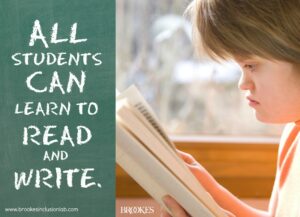 Starting from the basic premise that all students can learn to read and write, we kicked off 2020 with this blog post on the 10 success factors that are present when students with significant disabilities are learning literacy skills. Excerpted and adapted from Comprehensive Literacy for All by Karen Erickson & David Koppenhaver, these guidelines are a great starting point for supporting students with significant disabilities as they learn critical literacy skills they’ll use forever.
Starting from the basic premise that all students can learn to read and write, we kicked off 2020 with this blog post on the 10 success factors that are present when students with significant disabilities are learning literacy skills. Excerpted and adapted from Comprehensive Literacy for All by Karen Erickson & David Koppenhaver, these guidelines are a great starting point for supporting students with significant disabilities as they learn critical literacy skills they’ll use forever.
11 Strategies for Helping Your Students Develop Disability Pride
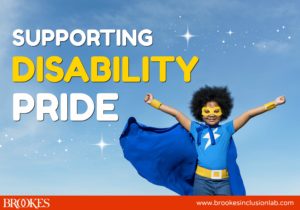 Brookes authors Margo Vreeburg Izzo & LeDerick Horne challenge both educators and people with disabilities to “embrace disability as a positive identifier.” This blog post, excerpted and adapted from Izzo & Horne’s Empowering Students with Hidden Disabilities, gives you some good tips and strategies for helping students develop disability pride and setting them on the path to meeting their future goals and dreams.
Brookes authors Margo Vreeburg Izzo & LeDerick Horne challenge both educators and people with disabilities to “embrace disability as a positive identifier.” This blog post, excerpted and adapted from Izzo & Horne’s Empowering Students with Hidden Disabilities, gives you some good tips and strategies for helping students develop disability pride and setting them on the path to meeting their future goals and dreams.
12 Ways Parents and Teachers Can Encourage Early Literacy and Language Skills
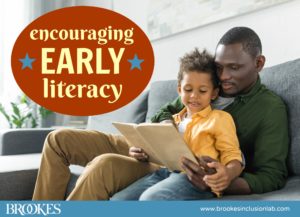 In the spring, as the spread of COVID-19 saw families retreating to their homes, many parents and educators worried that young children would miss out on key opportunities to develop their skills—including critical early literacy and language skills. We shared 12 specific, practical tips for giving young children’s literacy and language skills a boost, adapted from and inspired by some new and classic Brookes books from top early childhood experts.
In the spring, as the spread of COVID-19 saw families retreating to their homes, many parents and educators worried that young children would miss out on key opportunities to develop their skills—including critical early literacy and language skills. We shared 12 specific, practical tips for giving young children’s literacy and language skills a boost, adapted from and inspired by some new and classic Brookes books from top early childhood experts.
Antiracist Education: Books, Articles, and Resources for Teachers
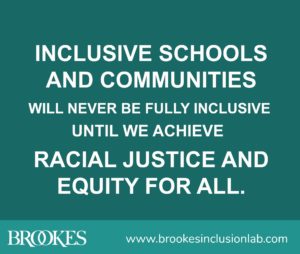 In June, our team made a statement in response to the tragic deaths of George Floyd and other Black Americans, and the protests that took place across our nation in response. (Read the full Brookes Publishing statement here.) Affirming that “inclusive schools and communities will never be fully inclusive until we achieve racial justice and equity for all,” we shared some helpful books, articles, and other resources for educators committed to working toward equity for their students.
In June, our team made a statement in response to the tragic deaths of George Floyd and other Black Americans, and the protests that took place across our nation in response. (Read the full Brookes Publishing statement here.) Affirming that “inclusive schools and communities will never be fully inclusive until we achieve racial justice and equity for all,” we shared some helpful books, articles, and other resources for educators committed to working toward equity for their students.
Supporting Grieving Students During the COVID-19 Pandemic
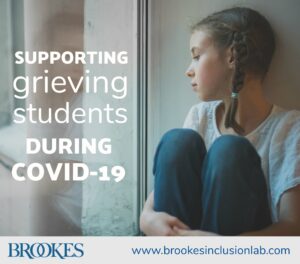 As the impact of COVID-19 continues to spread, it’s more important than ever for educators to know how to help students who are navigating a complex grieving process (even when it’s not possible to be with them face to face). In September, the Inclusion Lab welcomed Brookes author Marcia Quackenbush (The Grieving Student—new edition coming soon) to discuss ways to support grieving students in this uniquely challenging time.
As the impact of COVID-19 continues to spread, it’s more important than ever for educators to know how to help students who are navigating a complex grieving process (even when it’s not possible to be with them face to face). In September, the Inclusion Lab welcomed Brookes author Marcia Quackenbush (The Grieving Student—new edition coming soon) to discuss ways to support grieving students in this uniquely challenging time.
The Re-Set Process for Students: Self-Regulation in the Time of COVID-19
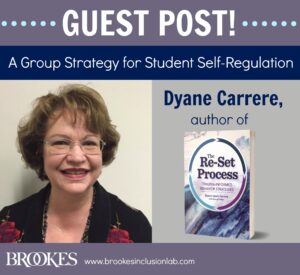 Self-regulation, an essential part of students’ social-emotional well-being and readiness for learning, can be difficult to achieve during a pandemic. This fall, we invited Dyane Carrere, author of The Re-Set Process: Trauma-Informed Behavior Strategies, to discuss how to use the Re-Set Process with a group of students to help them get regulated and ready to focus on their lessons.
Self-regulation, an essential part of students’ social-emotional well-being and readiness for learning, can be difficult to achieve during a pandemic. This fall, we invited Dyane Carrere, author of The Re-Set Process: Trauma-Informed Behavior Strategies, to discuss how to use the Re-Set Process with a group of students to help them get regulated and ready to focus on their lessons.
23 Virtual Learning Adaptations for Inclusive Educators
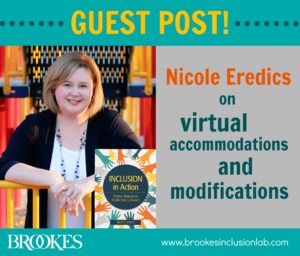 Accommodations and modifications are an important aspect of inclusive education in face-to-face classrooms, and they’re just as important in virtual settings. Inclusion in Action author Nicole Eredics—a true expert on this topic—visited the blog as the school year kicked into gear to share some accommodations and modifications you can use to help meet the needs of all students in a virtual learning environment.
Accommodations and modifications are an important aspect of inclusive education in face-to-face classrooms, and they’re just as important in virtual settings. Inclusion in Action author Nicole Eredics—a true expert on this topic—visited the blog as the school year kicked into gear to share some accommodations and modifications you can use to help meet the needs of all students in a virtual learning environment.
Notice the Need, Meet the Need: A Q&A with Jen Alexander on Trauma-Sensitive Back-to-School Plans
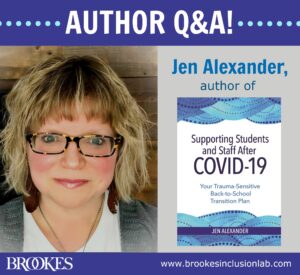 Trauma-sensitive teaching practices were on everyone’s mind as 2020 wore on—and Brookes author Jen Alexander was our go-to expert. Ms. Jen, author of the 2020 ebook Supporting Students and Staff After COVID-19, came by to share her insights on what it means to be a trauma-sensitive teacher, what kinds of emotions and behaviors teachers might expect from students during the pandemic, and more.
Trauma-sensitive teaching practices were on everyone’s mind as 2020 wore on—and Brookes author Jen Alexander was our go-to expert. Ms. Jen, author of the 2020 ebook Supporting Students and Staff After COVID-19, came by to share her insights on what it means to be a trauma-sensitive teacher, what kinds of emotions and behaviors teachers might expect from students during the pandemic, and more.
Why Every Reopening School Should Embrace Mediation
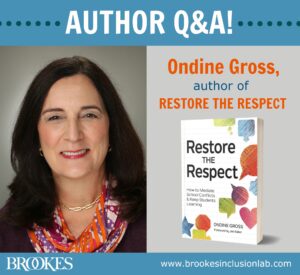 Sensitive and effective behavioral and social-emotional support will remain a key priority for teachers, during and in the aftermath of the pandemic. This fall, Restore the Respect author Ondine Gross guest-posted about the mediation approach to conflict resolution—and how this approach can help teachers deal with a potential uptick in challenging behaviors, achieve a more racially equitable classroom, and more.
Sensitive and effective behavioral and social-emotional support will remain a key priority for teachers, during and in the aftermath of the pandemic. This fall, Restore the Respect author Ondine Gross guest-posted about the mediation approach to conflict resolution—and how this approach can help teachers deal with a potential uptick in challenging behaviors, achieve a more racially equitable classroom, and more.
UDL and Self-Regulation During Distance Learning
 Digital learning strategies were top-of-mind for teachers across the country and around the world this year. Acclaimed UDL expert Loui Lord Nelson, author of the trusted guidebook Design and Deliver, contributed this great guest post on universal design for learning (UDL) and its key role in distance learning.
Digital learning strategies were top-of-mind for teachers across the country and around the world this year. Acclaimed UDL expert Loui Lord Nelson, author of the trusted guidebook Design and Deliver, contributed this great guest post on universal design for learning (UDL) and its key role in distance learning.
***
We join you in bidding adieu to 2020—and looking ahead to a new year that brings some peace, hope, and healing. If there’s anything you’d love to see us cover on the blog in 2021, please leave a comment below and let us know. As always, we’re here to serve the needs of the educators and families who work so tirelessly to support and include every student.
Happy holidays, and happy new year!
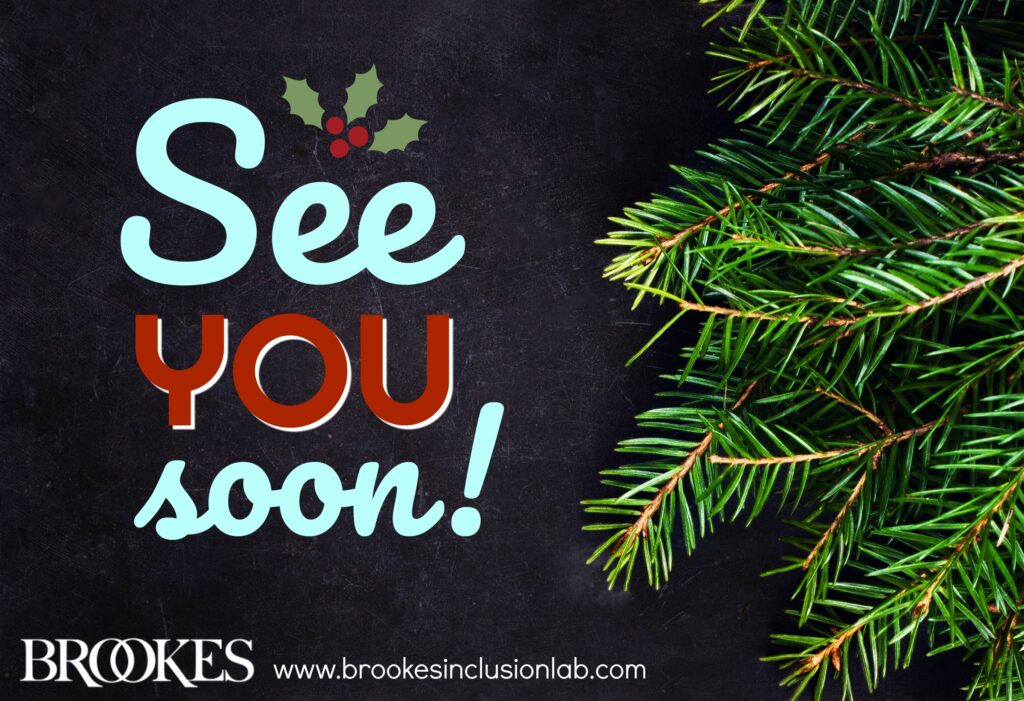

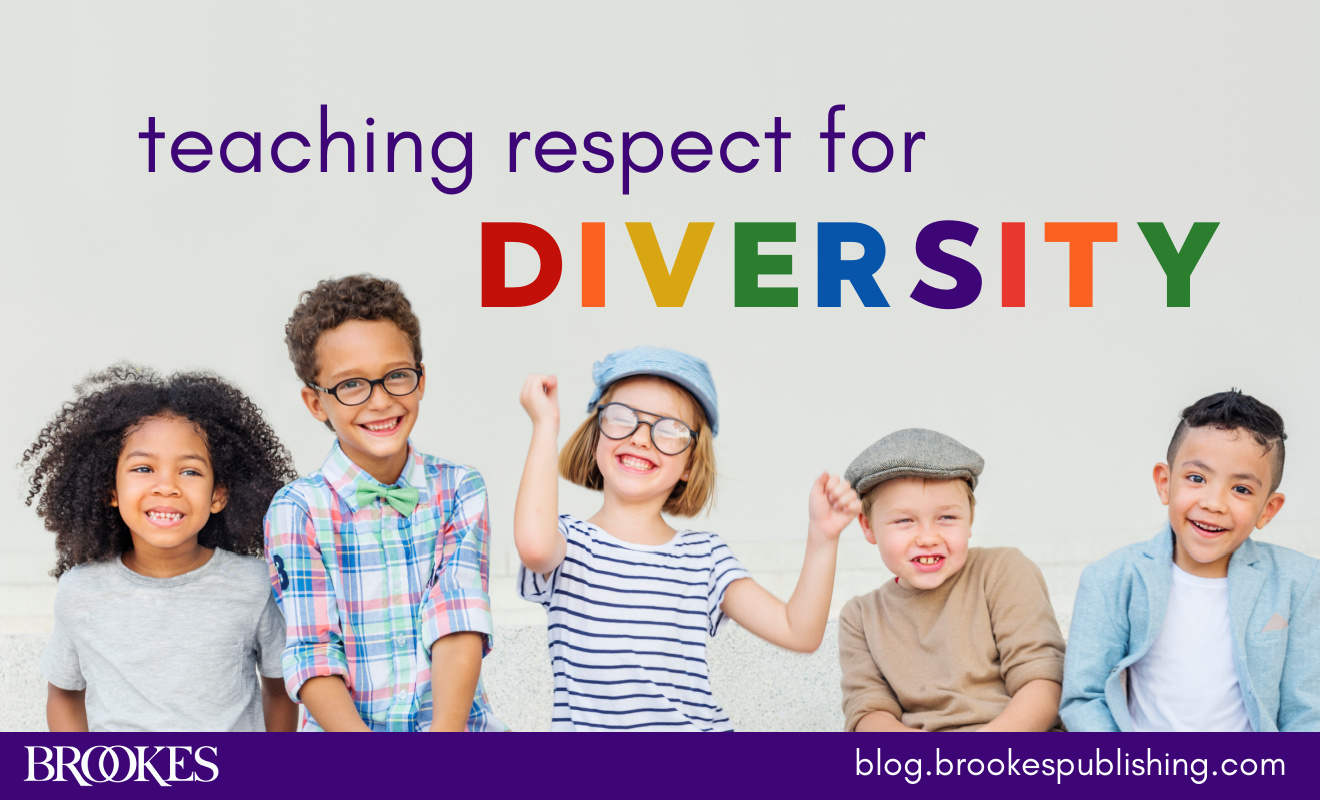
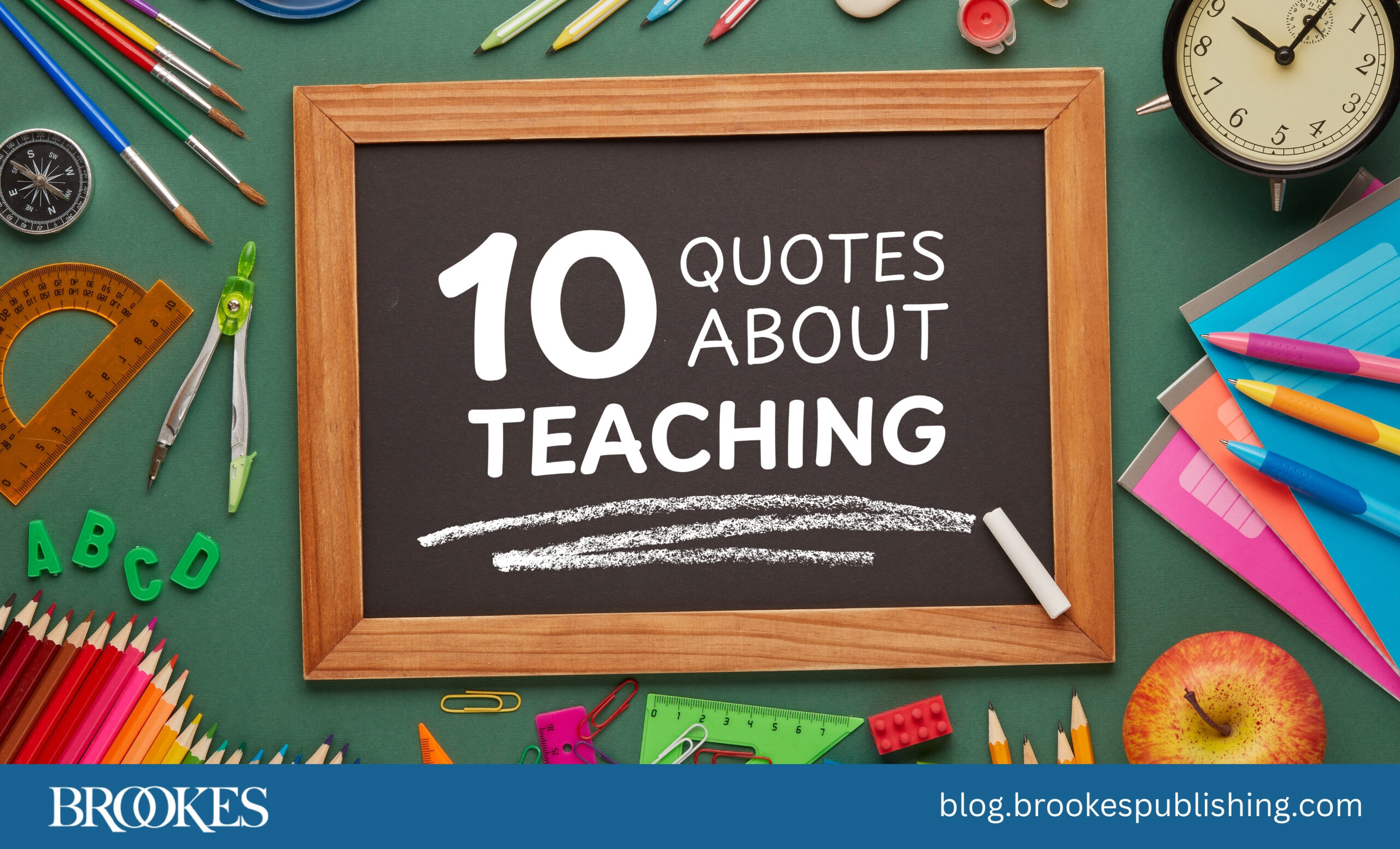
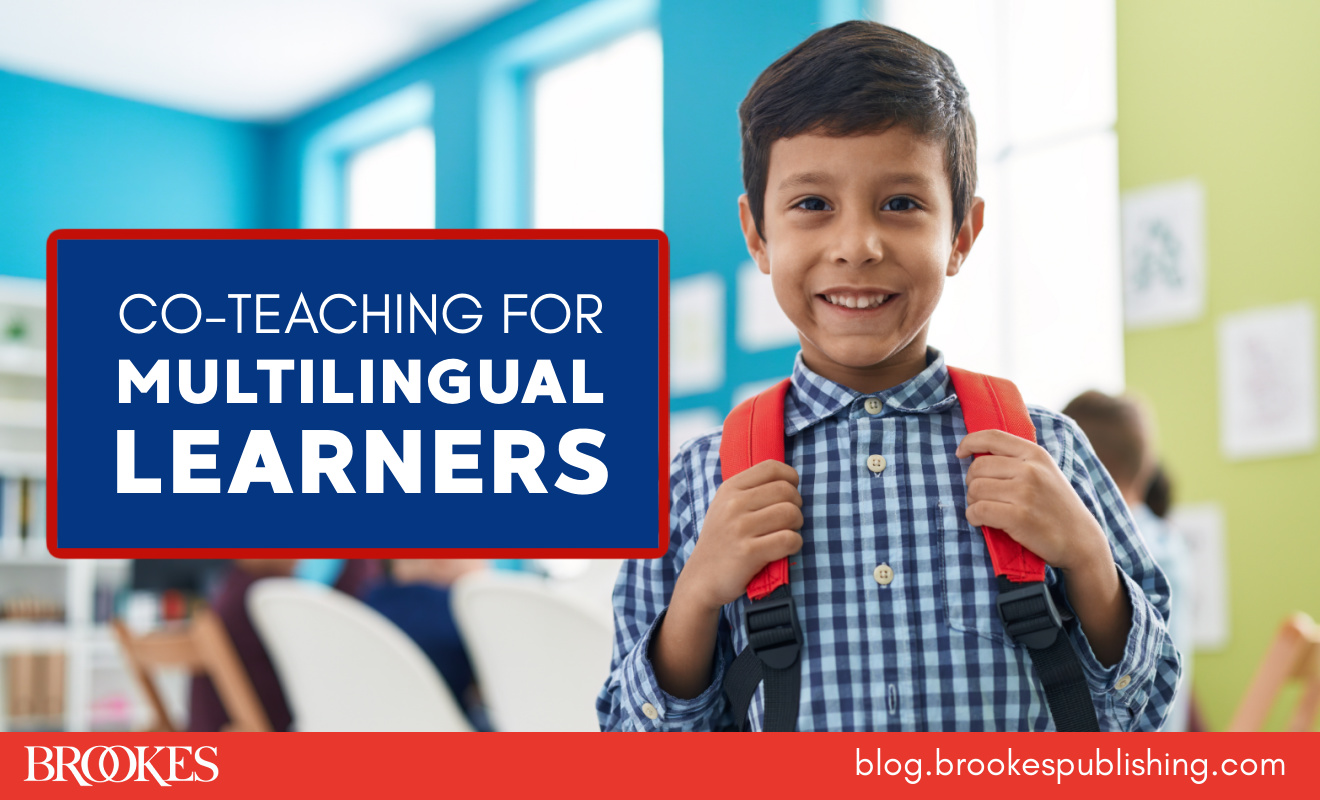
Write a Comment
Your email address will not be published. Required fields are marked *
Post a Comment